Publications
Articles, publications, books, tools and multimedia features from the U.S. Institute of Peace provide the latest news, analysis, research findings, practitioner guides and reports, all related to the conflict zones and issues that are at the center of the Institute’s work to prevent and reduce violent conflict.
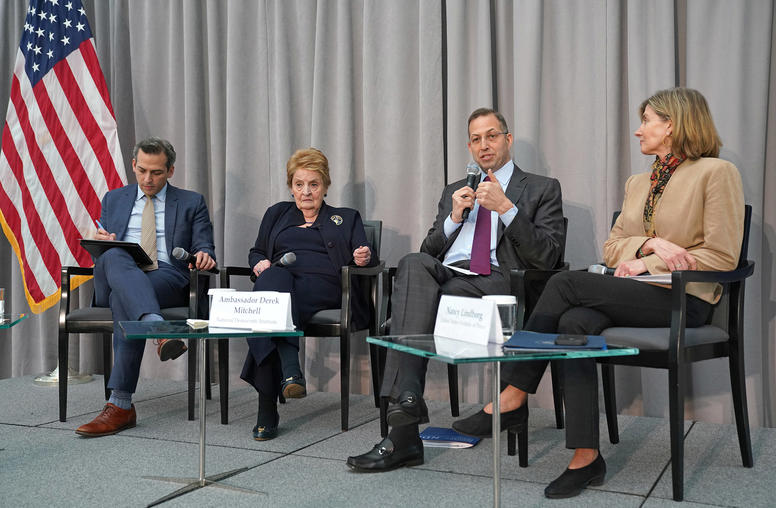
The Global Fragility Act: A New U.S. Approach
After several years of efforts by a bipartisan group of members of Congress and outside groups, Congress last month took legislative aim at a threat behind many of the world’s most pressing problems: fragile states. On December 20, as part of an appropriations package, President Donald Trump signed into law the Global Fragility Act, marking a new—if largely unnoticed— U.S. approach to conflict-prone states that can be vectors of violent extremism, uncontrolled migration, and extreme poverty.
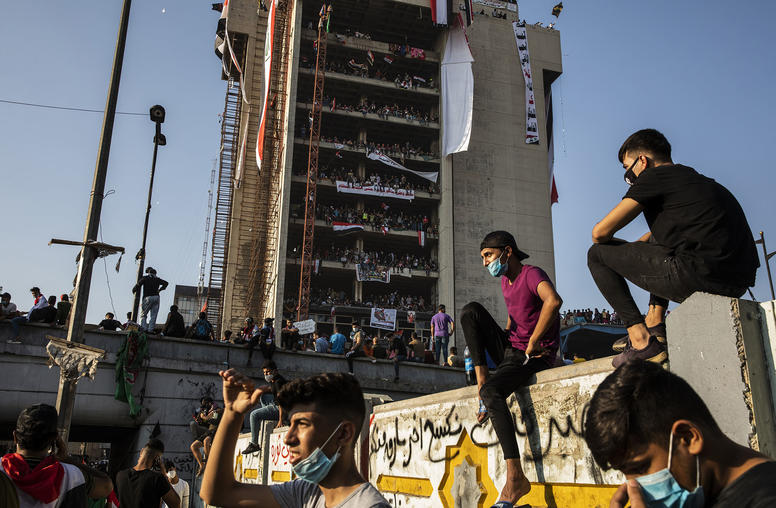
As Protests Continue in the Street, Iraq Reaches a Crossroads
Tens of thousands of Iraqis have been protesting in Baghdad and southern provinces against the failure of the Iraqi government and the political class in delivering basic services, providing jobs, fighting corruption, and more. Iraqi security forces and armed groups reportedly linked to Iran have used lethal force in response to the protests, leaving over 260 dead and over 10,000 injured. As the protests have progressed, demands have expanded to include calls for regime change, the resignation of Prime Minister Adel Abdul Mahdi, early elections, pushing back against Iranian influence, and accountability for killing peaceful protesters.

Local Cross-line Coordination in Syria
Throughout the eight-year-long conflict in Syria, the movement of people and goods—including vital foodstuffs, medicines, equipment, and fuel—has often been severely restricted by periods of prolonged fighting. Yet in many areas, local arrangements, historical circumstances, and key actors have facilitated trade and movement across the lines of conflict. This report examines four cross-line areas in Syria and draws lessons for how these local dynamics might affect the resolution of the larger conflict and these communities in the long term.

Steve Hege on the Latest in Venezuela and Colombia
The crisis in Venezuela and increasing tensions between the Colombian government and the Maduro regime threaten the security of the region and the implementation of Colombia’s 2016 FARC peace accord. USIP’s Steve Hege discusses recent obstacles to implementation of that accord and how the U.S. can support a democratic transition in Venezuela.

Nancy Lindborg on a New Prevention Policy 18 Years After 9/11
Eighteen years after 9/11, USIP President and CEO Nancy Lindborg reflects on the continued spread of violent extremism and points to the Task Force on Extremism in Fragile States as a blueprint for a new, preventive approach, saying, “I think we’ve all realized this is not a problem we can bomb our way out of.”
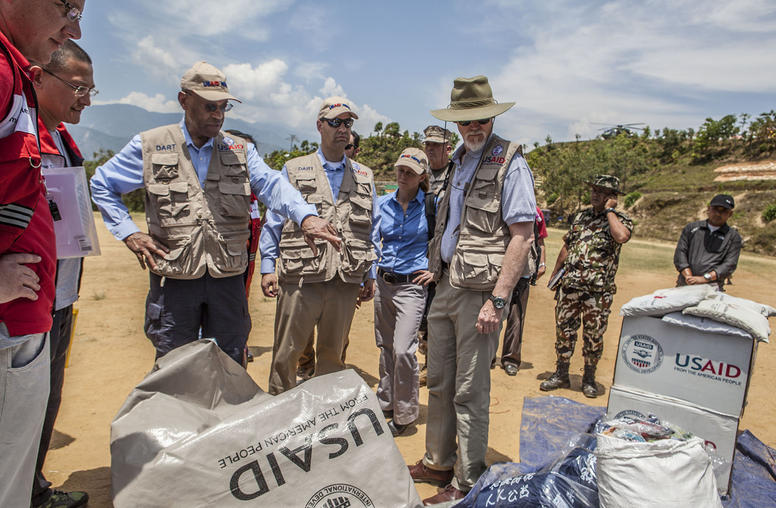
From How to Who: Reforming the Civilian Workforce for Prevention
It seems obvious that a U.S. foreign service or development officer would need a unique set of skills for dealing with the varied challenges they face in fragile countries. Delivering humanitarian assistance effectively in the wake of a natural disaster requires a mentality and approach that is different from advising a government in a fragile state facing mass unrest. But, the civilian workforce of the U.S government isn’t always equipped to perform the roles that policymakers require of them. Similarly, preventing conflict or extremism in countries where the United States has diplomatic missions requires a different way of operating—it may even require a different workforce altogether.
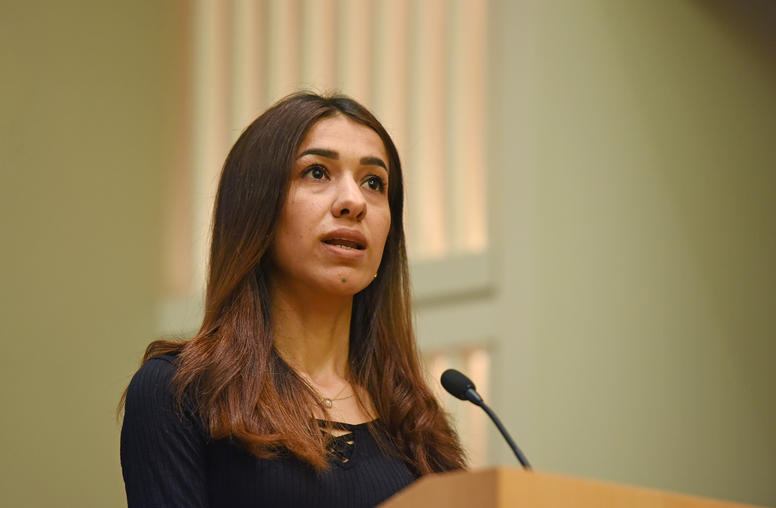
Nobel Laureate Nadia Murad Appeals for Aid to Save Yazidi Society
Nadia Murad, the sad-eyed, soft-spoken Nobel laureate and voice of the Yazidi genocide, warned that her people along with Christians and other minorities are slowly disappearing from Iraq. Faced with challenges that include uncertain security, lack of health care, stalled reconstruction and inability to leave refugee camps, Yazidis and other minority groups urgently need international help if they are to survive as components of Iraq’s national character, she said.

Why Security Sector Governance Matters in Fragile States
Editor’s Note: Congress charged the U.S. Institute of Peace with convening the Task Force on Extremism in Fragile States. Following the public launch of the Task Force’s final report, four groups of experts came together to discuss how to implement the report’s recommendations. This four-part series will discuss the findings from these strategy sessions. Part two summarizes expert discussion on the report’s recommendations on security cooperation and assistance and practical steps that could be taken to better align security cooperation and assistance with prevention.
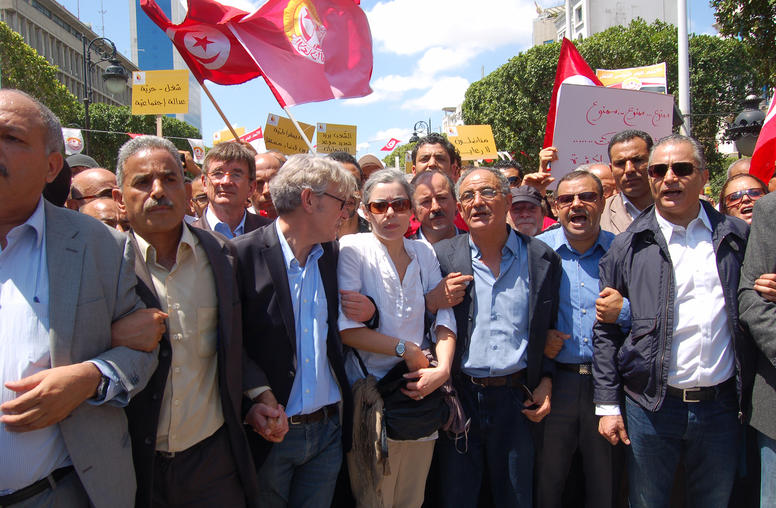
How Civil Society Can Help Prevent Violence and Extremism
Editor’s Note: Congress charged the U.S. Institute of Peace with convening the Task Force on Extremism in Fragile States. Following the public launch of the Task Force’s final report, four groups of experts came together to discuss how to implement the report’s recommendations. This four-part series will discuss the findings from these strategy sessions. Part one summarizes expert discussion on how civil society actors are preventing violent extremism and building resilience in their communities and practical ways the U.S. and other international actors can more effectively interact with civil society to bolster its role in prevention.
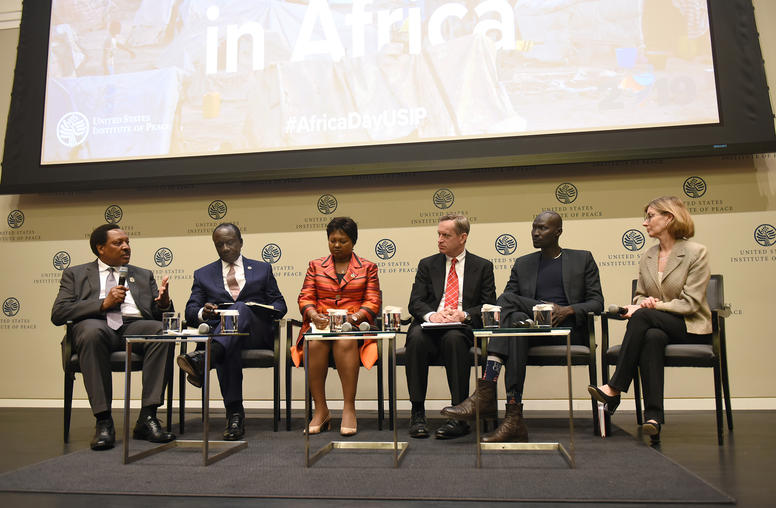
How to Address Africa’s ‘Staggering’ Displacement Crisis
Fifty years after the Organization of African Unity Convention on Refugees and 10 years after the Kampala Convention on Internally Displaced Persons (IDPs), Africa faces a crisis of forced displacemen